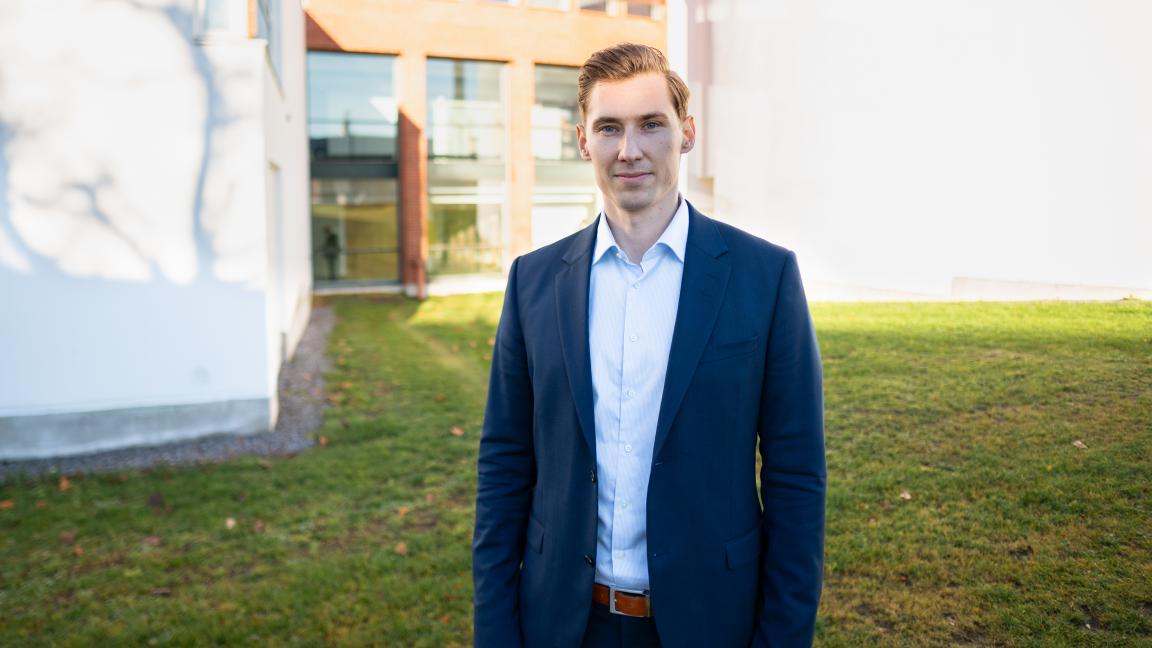In the 1920s and 1930s, the effects of illumination and working conditions on employee productivity were studied at the Hawthorne industrial complex in Chicago. According to soon-to-be-famous researcher Elton Mayo, these studies proved that instead of external factors, productivity was more significantly enhanced by addressing employees' social needs.
This groundbreaking finding formed the foundation for the human relations school, which still today remains a part of management theory and education. In his dissertation, Jesse Kajosmaa highlights a contradiction regarding the scientific basis of Mayo's findings – and, by extension, the basis of the early human relations school. While its inherently valuable message was quickly embraced by the scientific community, it was based on unscientific claims.
– For many, Mayo’s conclusion is self-evident, and it has been regarded for generations as scientific fact. In reality, these are not firmly proven scientific findings, but rather a matter of storytelling and even scientific deception, says Kajosmaa, who is defending his dissertation at the University of Vaasa.
A critical look at Mayo’s interpretations and their long-standing influence
The social network supporting Mayo, which ensured the triumphant spread of the human relations school’s message, included members of the business elite as well as academic influencers. According to Kajosmaa, their ideological interests alongside Mayo’s affected the interpretation of the results. Mayo's perspective created an impression that simply fulfilling employees’ social needs explained the increase in productivity. Many other factors, such as economic incentives, were omitted from the official narrative of the Hawthorne Studies.
– Mayo’s aim was to solve the societal problems of the era, such as growing unrest among the working-class. Mayo offered his supporters management perspectives aimed at ensuring a cooperative and compliant workforce. The underlying idea was a fascinating notion that employees do not need to be paid more to be more productive, Kajosmaa points out.
The Hawthorne studies were conducted during the historical development of management thoughts, when management as a discipline, profession, and social activity was still seeking direction and legitimacy. According to Kajosmaa, it is essential for HR managers, organisational researchers, and management educators to understand how the thoughts behind current management practices have been shaped and what power and economic interests they serve.
– This knowledge can support the development of management in a genuinely more transparent and ethical direction, which benefits the renewal of working life structures, Kajosmaa states.
Public defence
The public examination of M.Sc. (Admin.) and M.Sc. (Mil.Sci.) Jesse Kajosmaa’s doctoral dissertation ”Elton Mayon ja Hawthorne-tutkimusten myytti: Kriittinen johtamistutkimus varhaisen ihmissuhdekoulukunnan diskurssin perustasta osana johtamisen ja yhteiskuntatieteen oppihistoriallista kehittymistä” will be held on Friday 29 November 2024 at 12 in auditorium Nissi at the University of Vaasa.
Participation in the defence is possible also online:
https://uwasa.zoom.us/j/61738298504?pwd=rEF5IhPBI4qlbrmlTb91t4Wr9Csux8.1
(password 270130)
Docent Ville Pietiläinen (University of Lapland) will act as opponent and Docent, University Lecturer Kirsi Lehto as custos.
Doctoral dissertation
Kajosmaa, Jesse (2024) Elton Mayon ja Hawthorne-tutkimusten myytti: Kriittinen johtamistutkimus varhaisen ihmissuhdekoulukunnan diskurssin perustasta osana johtamisen ja yhteiskuntatieteen oppihistoriallista kehittymistä. Acta Wasaensia 543. Doctoral dissertation. University of Vaasa.
Further information
Jesse Kajosmaa was born in Vehkalahti in 1988. He graduated from the Finnish National Defence University’s 78th Naval Cadet Course in 2011 and has since worked as a naval officer in the Finnish Border Guard. Kajosmaa completed a Master’s degree in Administrative Sciences at the University of Vaasa in 2020 and a Master’s degree in Military Sciences at the Finnish National Defence University in 2023.
